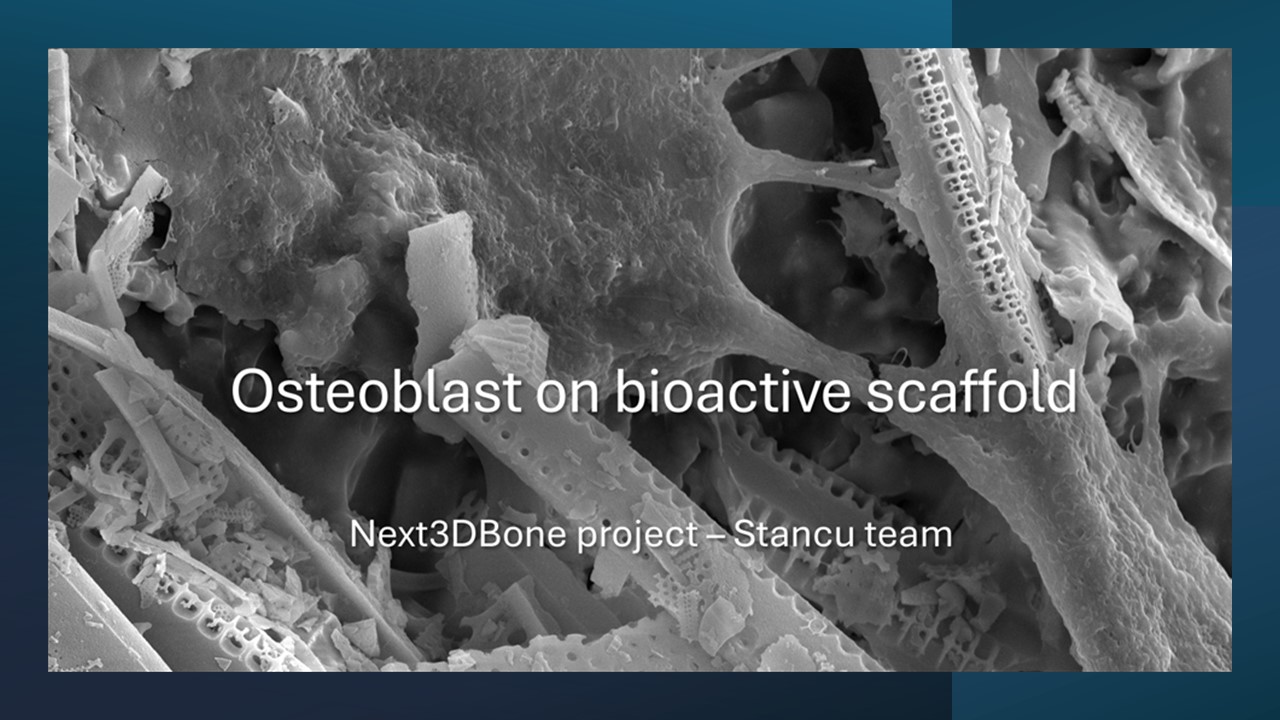- Enseignant: Mihaela Emanuela CRACIUN

This discipline aims to familiarize the students with the main types of (bio)functionalized polymers used for the development/engineering of substrates/scaffolds with predefined properties for regenerative and personalized medicine. Bio-inspired approaches are the main subject, with focus on the development of extracellular matrix analogues & cell-instructive scaffolds stimulating tissue regeneration and healing.
An introduction in bioconjugation reagents and strategies for specific applications in regenerative and personalized medicine is given. The students should be able to identify solutions to select/propose a modification strategy and a suitable modification agent, as well as a method to test the success of the reaction. The students will understand how they can improve the properties and provide solutions to some drawbacks and problems associated with different scaffolds for regenerative medicine, using (bio)functionalized polymers. The main classes of (bio)functionalized polymers and their applications in the field of tissue engineering and regenerative medicine will be presented. They will learn how to select a polymer (bio)functionalization to overcome a certain type of drawback or insufficient property of a biomaterial or of a device. The students will become familiar with modern and complex theoretical knowledge with practical relevance.
The practical works and the project are correlated with the theoretical information, with the aim of emphasizing the applicability of this discipline. The students are trained to analyze and identify solutions to practical challenges, using carefully selected experimental situations.
Evaluation:
50% - Exam
25% - Project
25% - laborator
An introduction in bioconjugation reagents and strategies for specific applications in regenerative and personalized medicine is given. The students should be able to identify solutions to select/propose a modification strategy and a suitable modification agent, as well as a method to test the success of the reaction. The students will understand how they can improve the properties and provide solutions to some drawbacks and problems associated with different scaffolds for regenerative medicine, using (bio)functionalized polymers. The main classes of (bio)functionalized polymers and their applications in the field of tissue engineering and regenerative medicine will be presented. They will learn how to select a polymer (bio)functionalization to overcome a certain type of drawback or insufficient property of a biomaterial or of a device. The students will become familiar with modern and complex theoretical knowledge with practical relevance.
The practical works and the project are correlated with the theoretical information, with the aim of emphasizing the applicability of this discipline. The students are trained to analyze and identify solutions to practical challenges, using carefully selected experimental situations.
Evaluation:
50% - Exam
25% - Project
25% - laborator
- Enseignant: Izabela Cristina STANCU
- Enseignant: Vladimir-Lucian ENE
- Enseignant: Georgeta VOICU